A Definitive Ranking of Nuts by Protein Content: Almonds, Peanuts, and More
Published Dec. 4 2020, 2:25 p.m. ET
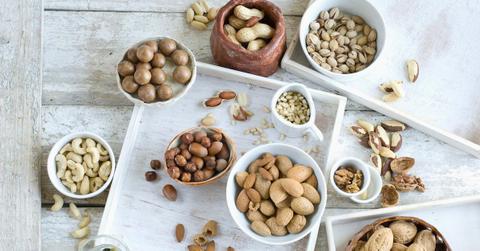
Vegan readers already know about the protein benefits provided by nuts and legumes. On top of that, nuts are densely packed with vitamins, minerals, and other micronutrients that are essential for good health. According to Harvard Health, eating just one serving of nuts a day resulted in a 30 percent lower risk of heart disease compared to an equal serving of red meat. Basically, nuts are good for you — something that will come as no surprise to anyone. But which nuts rank highest in protein, and which fall a little short?
Which nuts have the highest protein ranking?
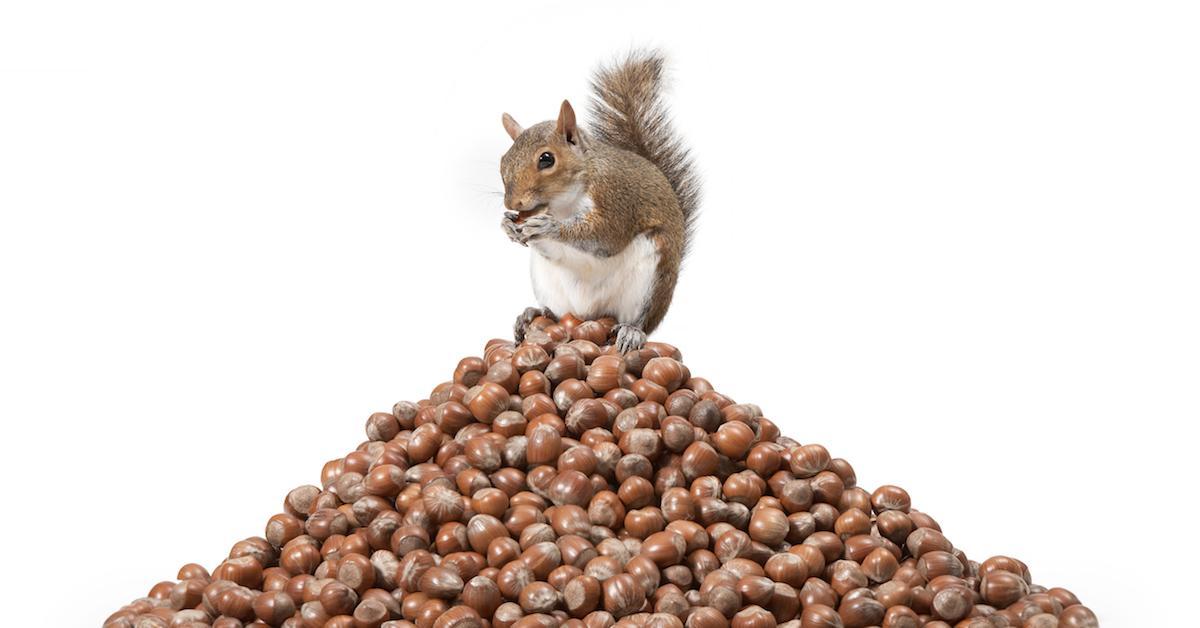
Almonds
Almonds are at the top of the list when it comes to protein, and they are a great healthy snack, even if you aren’t a vegan. According to Live Science, about 23 almonds provide nearly 6 grams of protein and 4 grams of fiber. They also contain healthy doses of vitamin E, magnesium, riboflavin, calcium, and potassium.
Almonds are also perfect for those who want to try and lose weight — not because they contain any compounds that facilitate weight loss, but because they are so high in fiber and nutrients, that you’ll feel satiated without all the added calories of a more sugary snack.
Peanuts
Peanuts aren’t exactly a “nut,” per se, but there’s no denying their popularity. According to the Peanut Institute, peanuts are the most popular nut in the U.S., accounting for half the country’s entire nut consumption. And at about 7 grams of protein per 28 unshelled nuts, it’s easy to see why so many people are reaching for this tasty legume.
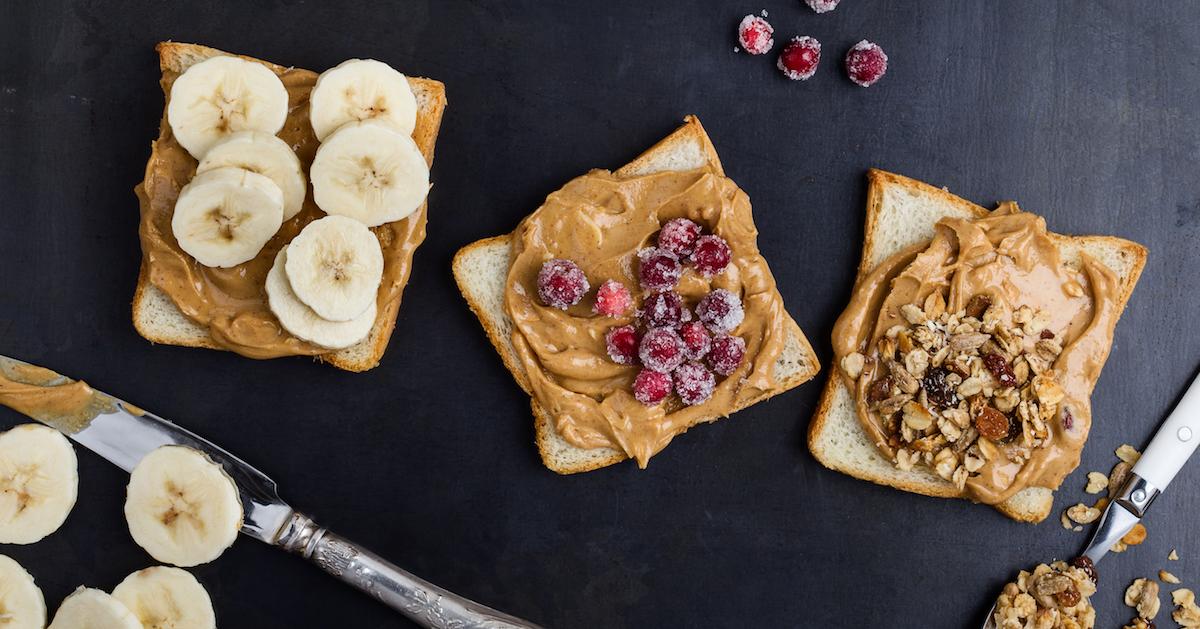
Pistachios
Pistachios aren’t just for making green ice cream. 49 of these little beauties account for 6 grams of protein, making them on par with Almonds as the go-to healthy snack of choice, They also provide a high amount of fiber as well, balancing the digestive system and making it so you feel less hungry throughout the day.
Cashews
Cashews are kidney-shaped tree nuts (technically, they're a seed, but they are typically grouped with tree nuts) that contain 5 grams of protein per 16 cashews. In addition to one serving providing 98 percent of your recommended daily amount of copper, cashews have been linked to weight loss, improved blood sugar levels, and a healthy heart. Like almonds and pistachios, they also provide a decent amount of fiber.
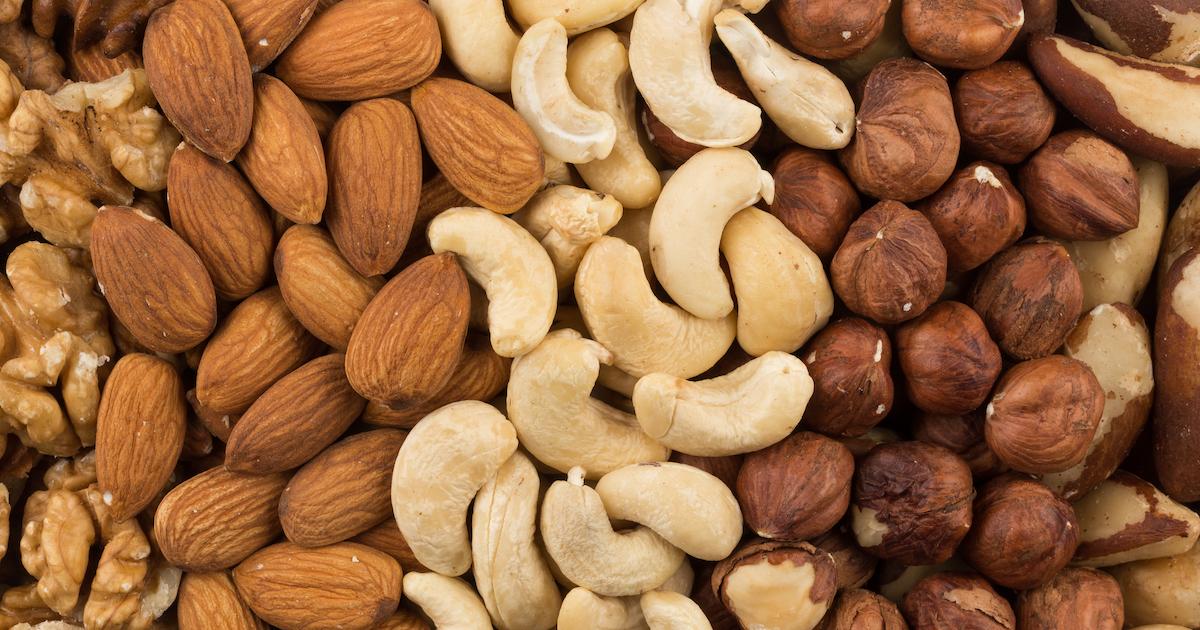
Pecans
Pecans are often synonymous with that fabled Thanksgiving confection, the pecan pie, but they should certainly not be ignored for the rest of the year. Pecans are a great source of protein — about 3 grams per 18 halved pecans — and one of the best sources of healthy fats next to olive oil and avocado.
Walnuts
Studies at Harvard have revealed that walnuts are effective at lowering cholesterol and reducing the risk of both heart disease and stroke. They also have a distinct taste, which makes them excellent snacks or ingredients in everything from desserts to stir-fries to stuffings. On top of that, they have about 3 grams of protein a serving, which is around 10 walnuts.
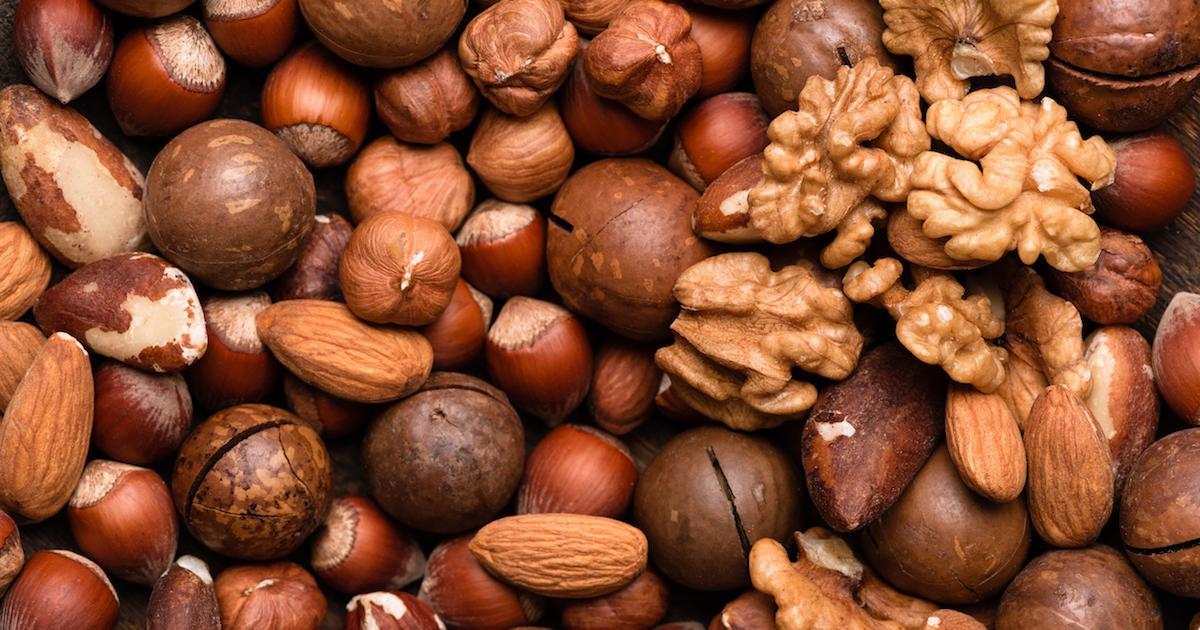
Macadamia nuts
A handful of Macadamia nuts — about 10 — contain about 2 grams of protein, which is the least amount of protein of any nut on this list. That said, they are a delicious addition to any snack of dessert and are actually pretty darn healthy. There’s even proof that they cut cholesterol, according to WebMD.
Hazelnuts
You might assume that hazelnuts are only good for spreading on a slice of chocolatey toast...and you’d be right. But they’re also a great source of protein that should not be ignored. High in magnesium, calcium, vitamin E and B, these nuts contain 2 grams of protein per 10 nuts. They also make for a delicious coffee creamer.
No matter what nut you choose to reach for, you can be pretty confident that any of the ones on this list will provide you with the right amount of protein, vitamins, and minerals to help bolster your daily diet.
This article, originally published on Dec. 4, 2020, has been updated.